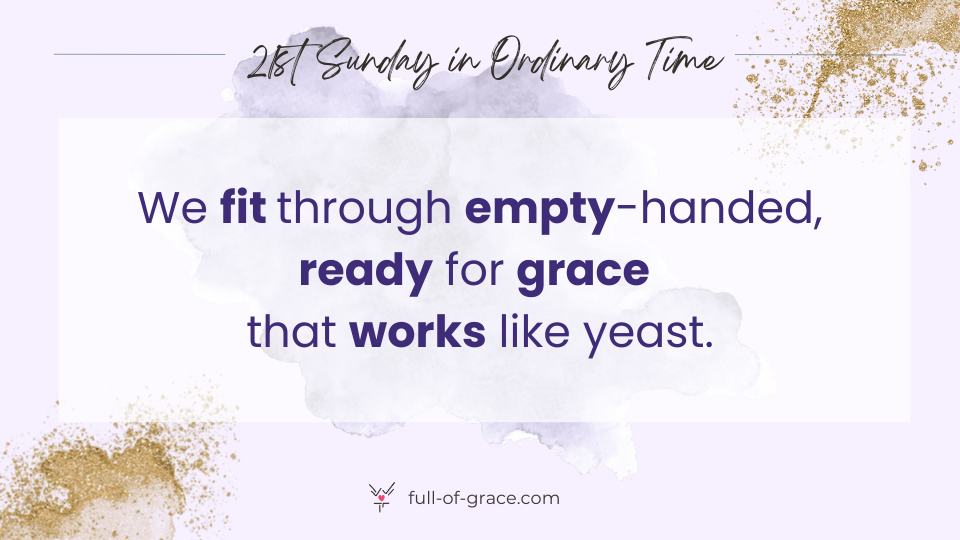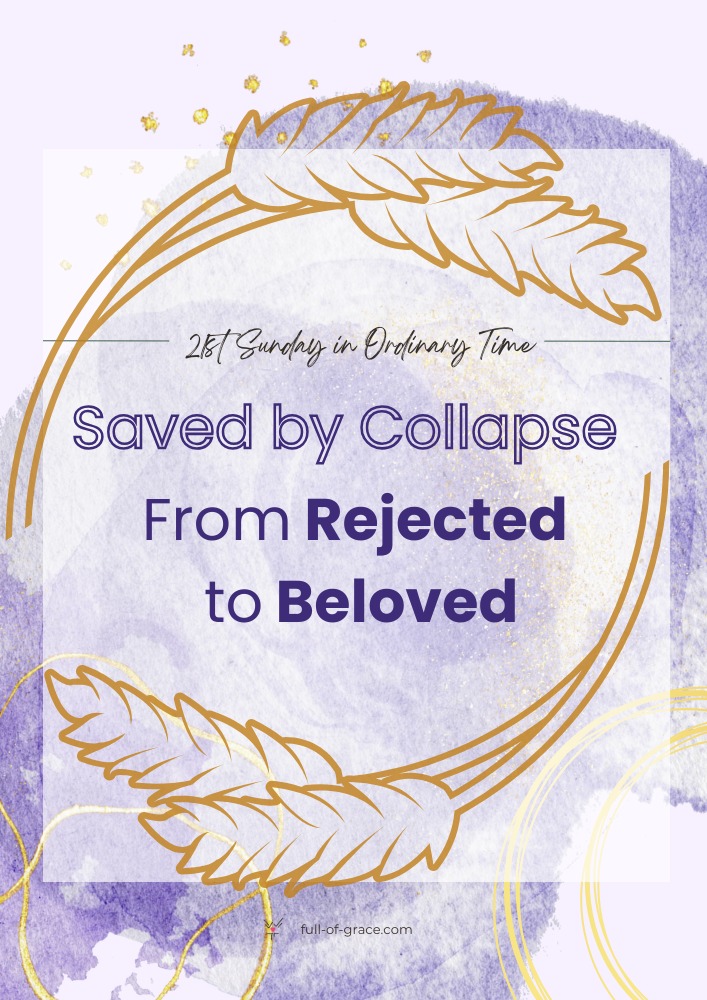Reflection for the 21st Sunday in Ordinary Time Year C
Running in the Dark
The city empties under evacuation orders. Every screen flickers blue against abandoned streets while mechanical voices drone their endless loop: “There are no more shuttles out of the impacted zone. Please remain at home and await further instructions.”
I choose shadows over searchlights, slipping through medieval corners while patrol units circle city hall. My heart hammers against my ribs. Every footstep might be my last mistake.
The rumors led me here—whispers of a safe house still taking refugees. Yellow walls topped with blue tiles, just past the train tracks. So close I can almost touch safety.
But the tracks stretch between us like a canyon. Do I climb the exposed viaduct, silhouetted against the night sky? Sneak through the tunnel where anything could be waiting? Or sprint across the rails, trusting my feet to find solid ground?
Terror lives in every choice.
I run. Breathless. Desperate. Alive.
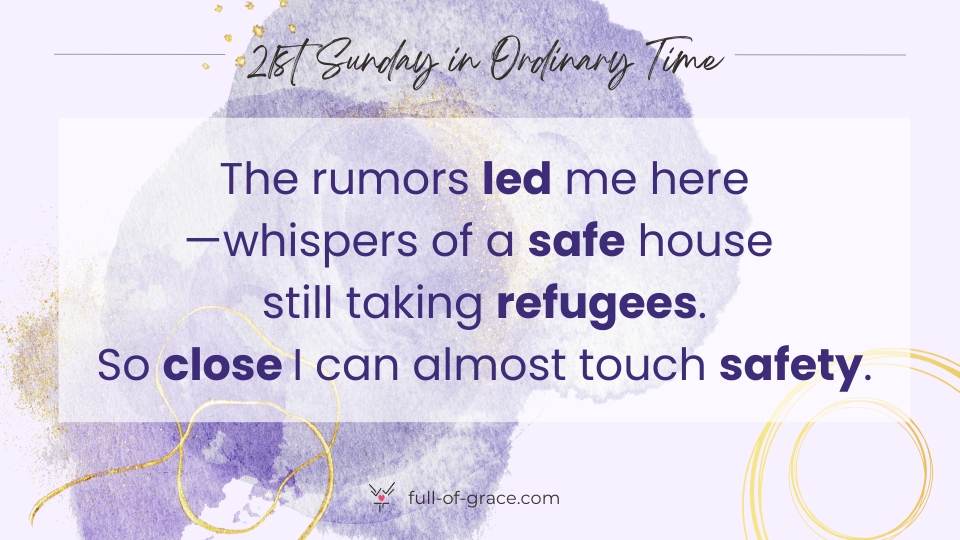
The Locked Door
Heavy curtains hide the windows. The door won’t budge. I press my cheek against cold wood and listen—voices inside, dishes clinking, someone laughing. Life flows in sweet, ordinary rhythms while I stand hunted in the darkness.
Shadows circle behind me. Shouts echo through my bones. My hands won’t stop shaking.
How does someone knock when convinced she deserves rescue more than the others still running through those dark streets? Do I pound with confidence, as if I belong here? Or tap apologetically, like a salesperson hoping not to be turned away?

My fist hovers in the air. What does my body become in this moment—hunched with shame or falsely straight with bravado?
When the door opens—if it opens—what proof can I offer that I belong with the saved rather than the lost?
The Face That Doesn’t Know Mine
Light blazes. My dearest friend fills the doorframe.
I gasp, sob, throw myself toward his arms: “Thank God, it’s you.”
But he stares at me with empty eyes, waiting for explanations.
“Do I know you?”
The words hit like ice. My unfinished embrace dissolves. I search desperately for something to say—one shared memory that could mean the difference between safety and crossing back into those overturned streets.
What do I say to the face that doesn’t know mine?
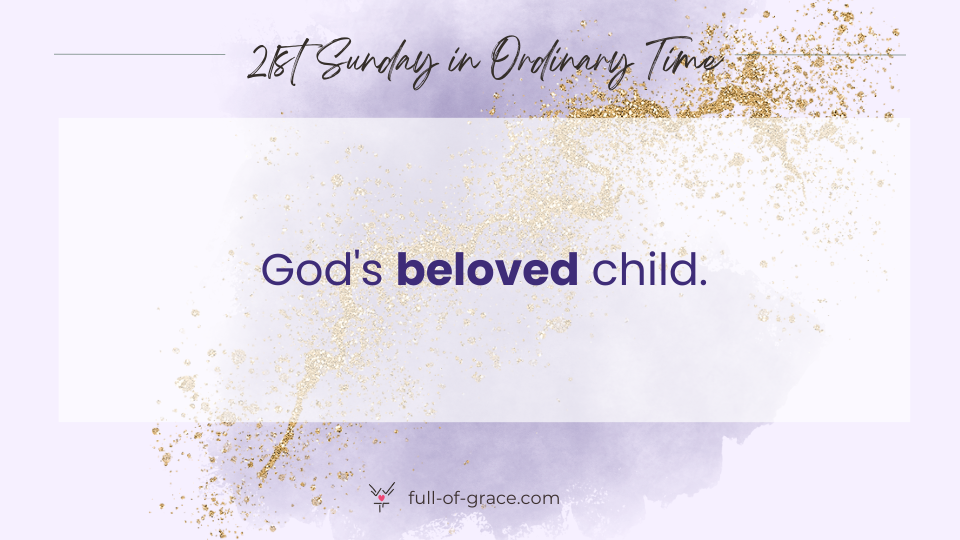
When Jesus Doesn’t Know Your Name
This is how I hear the gospel about the narrow door. I am the one Jesus might not recognize.
The fear rises like flood water—all those moments when I wasn’t enough. When I reached for belonging and found empty air. Every rejection I’ve ever imagined comes rushing back.
What if all my prayers have been shouting into a deaf, rigid sky? What if when I finally meet Jesus face to face, he asks with that same puzzled look: “Do I know you?”
What proof could I offer?
“Lord, I went to Mass nearly every Sunday”—but so do thousands who have maintained perfect attendance for decades.
“I prayed every day”—but how often was that just desperate bargaining, trying to convince God to give me what I desired?
“I served in ministry”—but was that really about love, or about earning my place, making myself too useful for God to abandon?
I realize how much of my faith has been about collecting evidence of my worth instead of simply claiming my identity as God’s beloved child.
Clinging to Jesus’ Robe
When I see Jesus turning me away in my imagination, I become like a dog chasing after him, grabbing at his robe. And once I take that stance at Jesus’ feet, I remember her—the woman who wouldn’t be shamed even when Jesus called her a dog. She just said, “Fine, even dogs eat the crumbs from the master’s table.”
She didn’t argue her worthiness. She simply refused to walk away.
When I see myself clinging to Jesus’ robe like that persistent woman, I know I’m already saved.
But my Sunday gatherings often feel like being pushed away before I even knock. No female welcome, no women reading. No women bringing gifts. Sometimes no women singing. Just choreographed male performance, efficient and controlled.
Yet the same church that greets me with such indifference tells me every Sunday that I’m baptized, that I belong. I know Jesus welcomes outcasts, breaks rules to heal. So why does “go away from me” feel so possible?
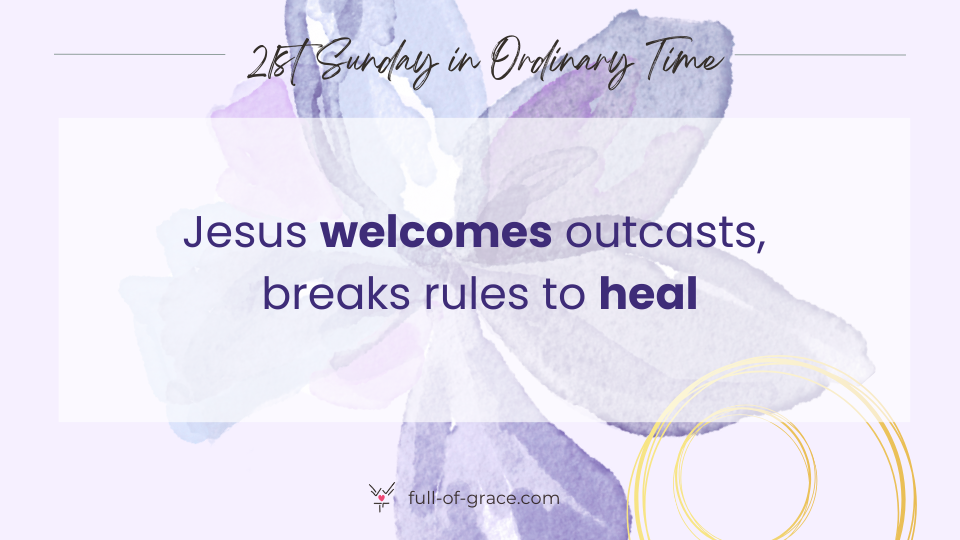
What We Miss
What I forget when I focus only on that terrifying door is that just before this gospel, Jesus breaks Sabbath rules to heal a nameless woman in pain. Religious authorities whisper about proper procedures.
Jesus responds with parables of wild abundance—mustard seeds growing uncontrollably, yeast spreading through dough in ways you can’t measure or manage. Kingdom light shining everywhere, growth you cannot box or franchise.

Then someone interrupts this brightness: “Lord, will only a few be saved?”
Such a jarring shift. From generous, uncontrollable kingdom to “But what about me? Where’s my slice?”
Beyond Individual Salvation
When I demand my portion of the kingdom, my body tenses. I start cataloging spiritual failures. Maybe I don’t have proper community. Maybe I’m not doing enough good works. Maybe I don’t love people enough in measurable ways.
For years I treated Mass as individual worship time—me and Jesus, one-on-one, while other people became obstacles to my personal spiritual experience. I’d get annoyed at imperfect liturgy, off-key singing, wrong bell timing.
But what if that’s backward? What if the question isn’t “Will I be saved?” but “How do we enter fellowship at this table?”
The first reading says God gathers people from every nation, every language. People who’ve never heard of God, who don’t know our choreography, who will make our worship beautifully, chaotically messy.
Are we ready for that disruption?
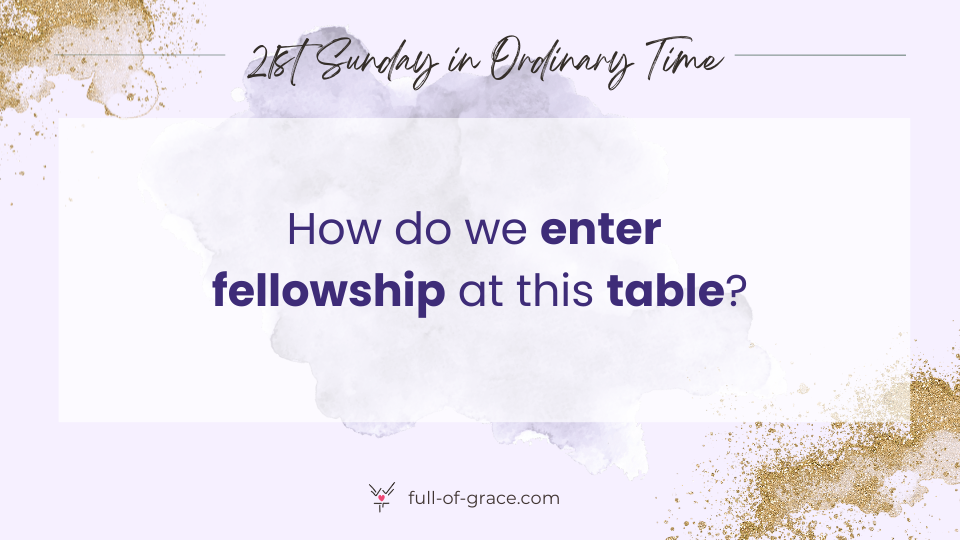
Valid Mass
I watched this struggle while co-shaping a unique Sunday Mass Experience in Ireland for people disconnected from traditional ritual but hungry for God. We stopped ringing the opening bell, instead inviting people to join when they felt ready, when the community was actually gathered and singing.
Some asked if it was even “valid.” Would this messier version count toward Sunday obligation? Would God accept this imperfect offering?
God showed up in abundance. Exactly like those kingdom parables—uncontrollable, unmeasurable growth you can’t replicate with formulas.
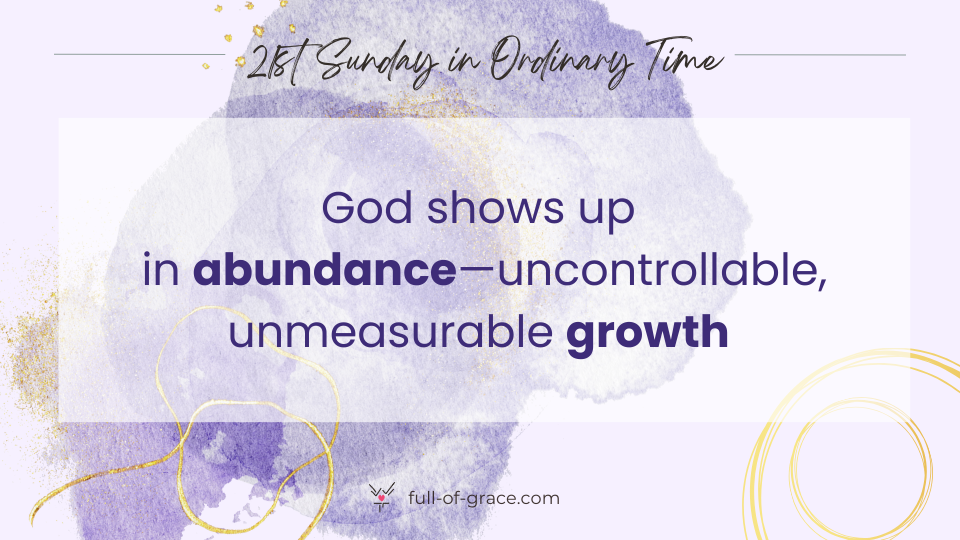
Knocking Together
I don’t stand at that narrow door alone. Five or six others journey with me—people I’ve chosen because being Catholic is rich and complicated, and we all select different tools from this enormous treasure box.
We’ve decided to knock together, to support each other whatever happens when the door opens or stays locked.
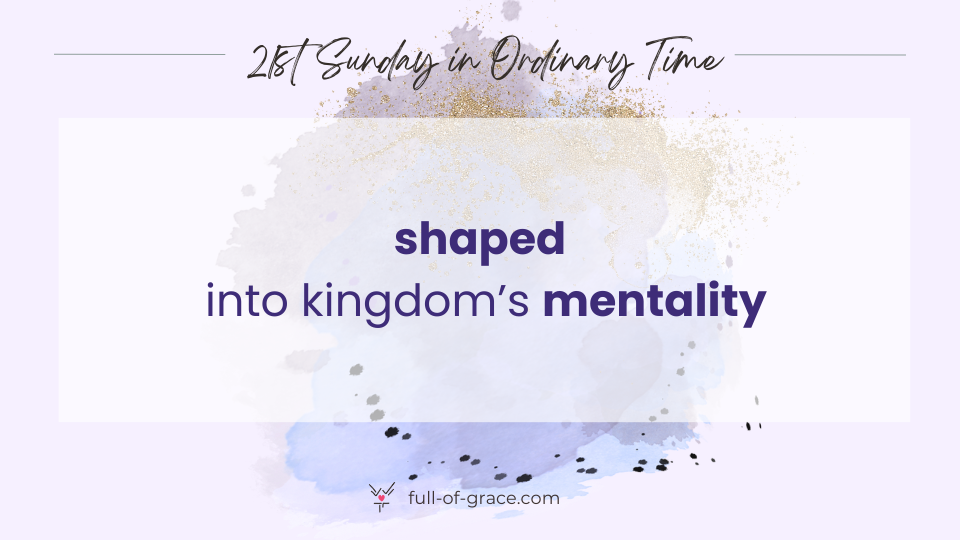
The second reading tells us we’re being shaped like clay into people who can live with God’s kingdom mentality. Will we be changed by this molding, or just keep polishing our spiritual achievements, making our religious vessels look clean and deserving?
The God Who Knocks Back
Sunday Mass is knocking from both directions.
Yes, we knock at God’s door—bringing hunger, questions, desperate need to belong somewhere, to matter to someone who sees us completely.
But God knocks from inside too. More desperate to reach us than we could ever be to reach God. Every Sunday, God begs entry to our hearts, offering abundance through every proclaimed word, broken bread, imperfect community gathered in mystery we barely understand.
When I imagine collapsing at that door, exhausted from trying to prove I’m worthy, something beautiful happens. The door opens not because I finally got everything right, but because God catches me when I fall.
“I’ve got you,” God says. “I see you’re tired of earning your way in. Let me hold you in this collapse. Let me knock on your door for a while.”
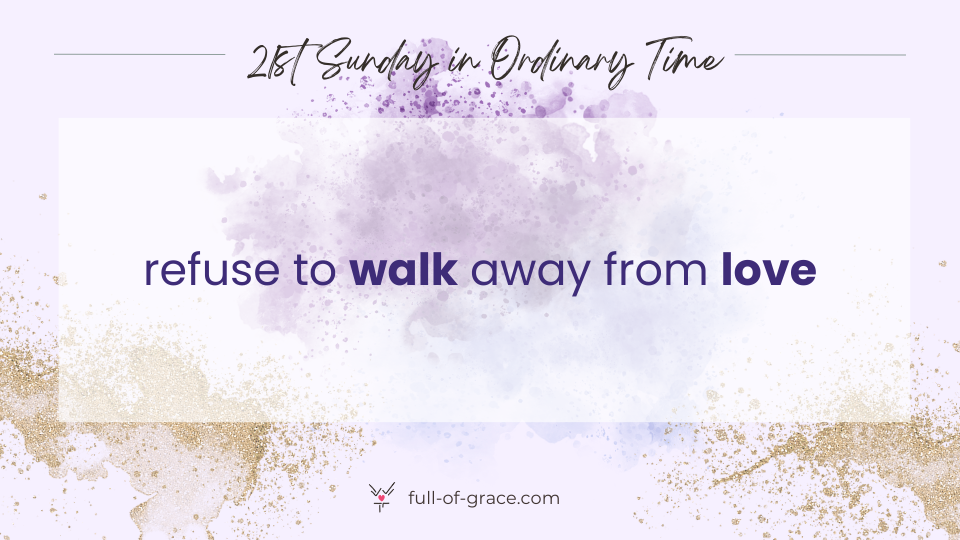
This is what happens to that persistent woman. When she refuses to be shamed, when she embraces even the crumbs, Jesus doesn’t just heal her daughter—he calls her faith “great.” The woman who accepts being called a dog becomes the one whose shameless persistence Jesus holds up as a model. Her readiness to be rejected transforms into being beloved. Not because she argues her way to worthiness, but because she refuses to walk away from love, even love that seems to push her aside.
When Falling Becomes Flying
The door is narrow not because God wants to exclude, but because we must leave behind our need to control the encounter, earn our place through good behavior, keep liturgy and spiritual life tidy and manageable.
We only fit through empty-handed, ready for grace that works like yeast rather than business transactions.
That kingdom Jesus describes keeps growing wild and uncontrollable, spreading through the dough of our ordinary, confused, imperfect lives in ways we never expected and can’t measure.
The door is narrow.
But the feast on the other side has room for everyone—those who don’t know proper responses, who arrive late, who feel like dogs begging scraps, who collapse from exhaustion before finishing our knock.
Especially us.
